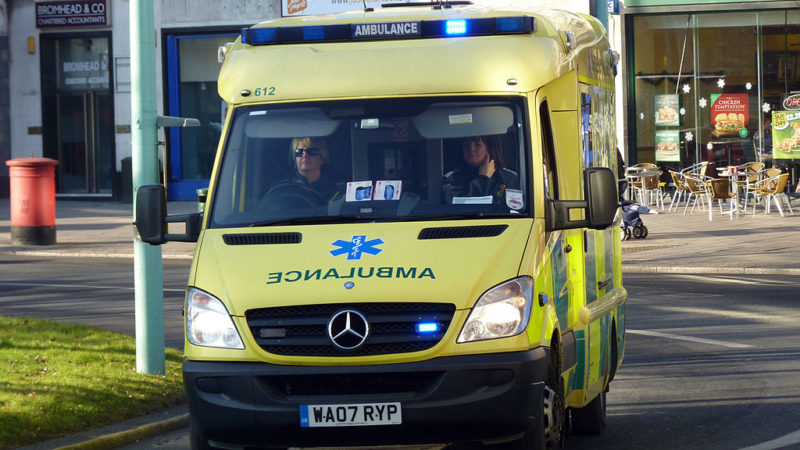With a shaky history of patient support, the East of England Ambulance Trust is planning to bring in volunteers to drive emergency vehicles. Alex Mayer MEP gives the plan a red light.

After eight years of Tory austerity and a steep rise in demand, like all of the NHS, the ambulance service is stretched.
There are now around 11 million calls for ambulances a year, which is over 3 million more than there were in 2011. An over 200% increase in the space of six years.
If you dial 999 for an ambulance, you have certain expectations that highly qualified, well trained NHS staff will come to help.
However, according to a recently leaked email, things have gotten to a point that the East of England Ambulance Trust is considering using volunteers to drive ambulances to plug gaps this winter.
And the East of England Ambulance Trust had a torrid time during the last cold spell. Norwich South MP Clive Lewis revealed details of a whistleblower, alleging that 20 patients had died while waiting too long for an ambulance.
There was a debate in the House of Commons and an external review of the trust’s performance concluded that 22 serious incidents occurred over the winter months, with three people found to have been caused “severe harm” to.
It is clear why the Trust is exploring options, but using volunteers is not the right prescription. They should not be seen as a source of cheap labour to patch up an underfunded and under-supported public service and it is vital that we in the Labour and trade union movement oppose this move and defend highly trained, paid staff.
We often use the colloquial term ‘ambulance drivers’, but the people who drive our ambulances are qualified ambulance care assistants, emergency care assistants, or paramedics. These are people who have studied to make sure they can administer life saving treatment outside of a hospital environment.
Indeed, the NHS’s careers website advises people seeking a role driving an ambulance that staff in the emergency side of ambulance work will “be involved in directly assessing and providing patient treatment”.
Paramedics are outraged as this is quite literally a question of life and death.
They want to be working with someone who is fully qualified and knows what they are doing.
Volunteers are also not a long term, nor a sustainable solution. The very nature of volunteering means they will be undercutting paid professionals. And the downward pressure on the pay of ambulance workers could further hinder recruitment and retention.
Volunteers are of course just that, whereas staff provide much greater certainty over staffing levels to be able to meet the demands on a service.
Paid staff provide much greater consistency and continuity in delivering services as they stay longer, making money spent in training a better investment.
Indeed, the use of volunteers should not let Conservative politicians off the hook for failing to fund our NHS adequately. Overuse of volunteers can even end up shifting blame from government to the community, if a service is not delivered.
There are many ways to fix the current problems at the East of England Ambulance Service. A good place to start would be improvements to pay and conditions for staff, especially as a Unison survey found 10% of the workforce had taken sick days as a result of stress.
Additionally, the crisis in social care means more call outs to slips and falls. Queues at A&Es stop ambulances getting back out on the road. In February, 87% of handovers at both Watford hospital in Hertfordshire and the Queen Elizabeth hospital in Norfolk took over 15 minutes. We need better funding and an holistic view, not sticking plaster solutions.
Volunteers play an important role in society, but austerity must not be allowed to push volunteering beyond its accepted boundaries.
We must draw a line and tell the East of England Ambulance Trust there can be no green light to these plans.
Alex Mayer is a Member of the European Parliament for Labour, representing the East of England.
To reach hundreds of thousands of new readers and to make the biggest impact we can in the next general election, we need to grow our donor base substantially.
That's why in 2024, we are seeking to generate 150 additional regular donors to support Left Foot Forward's work.
We still need another 124 people to donate to hit the target. You can help. Donate today.



